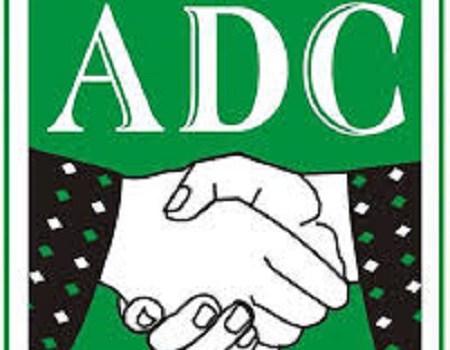Technology
Why is China funding the Russian war?
For the first two years of the Russian invasion of Ukraine, China presented itself as an independent arbiter. In 2023 it even proposed a 12-point peace plan that was mainly commerce-orientated. Practical goals such as protecting civilians and prisoners of war were included, although notably it does not criticize Russia’s unreasonable rationale for the invasion.
Now that plan is missing from official Chinese government websites and China unequivocally supports Russia economically, and with millions of dollars of military aid.
One example is Silva a Russian shell company, headquartered in Buryatia, Siberia. According to Politico it filed declarations in January 2025 detailing orders for 100,000 bulletproof vests and 100,000 helmets from manufacturer Shanghai H Win.
Chinese manufacturers providing Russia with dual-use (military and commercial) components has been critical in boosting Russia’s military capabilities. In 2024, dual-use shipments from China to Russia surpassed US$4 billion according to Dr Daniel Balazs of the S. Rajaratnam School of International Studies (RSIS). These included optics, transmitters, engines, microcircuits, antennas, control boards, software and navigation systems.
While there are no examples of China supplying heavy weaponry like artillery, they have certainly provided essential laser guidance systems, ball bearings, and gunpowder.
More significantly, drones are critical on the Ukraine battlefield. China is the major supplier to Russia of military surveillance and attack drones, initially the Mavic series from DJI. From 2022 to 2023 Chinese firms sold $12 million (U.S.) worth of drones and spare parts to Russia. Currently, the Russian V2U strike drones, which have artificial intelligence capabilities, are entirely made up of Chinese components.
In return, Russia shares its expertise with China in submarine technology, missile systems, and advanced radar. Ironically, China takes these systems, reverse-engineers them and produces jets and jet engines that are superior to their Russian counterparts. As Russian military equipment losses grow, and they no longer have the technology to replace them, they will be forced to buy more military materiel from China.
Moreover, as the Russian economy collapses, they increasingly rely on China to prop it up.
In July 2025, Russia sold China 8.71 million tonnes of crude oil, representing nearly a fifth of China’s total crude imports. Nevertheless, Chinese industrial demand is declining, and they are wary of further U.S. sanctions. Ukrainian attacks on Russian oil refineries are affecting Russian production and domestic supply.
The war in Ukraine has also resulted in severe manpower shortages. In 2024, Russia’s industrial sector hired approximately 47,000 foreign workers, many from China. Furthermore, according to the BBC, over13,000 North Koreans are forced to work on construction sites in Russia in substandard conditions.
Everyday consumer items in Russia are now Chinese.
Chinese cars accounted for nearly 60% of the new car market in 2024. China’s total exports to Russia reached a record $240 billion, with clothing being a significant component. Even their essential down jackets and fur coats are provided by Chinese companies. China dominates the Russian market in cell phones, refrigerators, televisions, furniture and bedding.
Russia is trying to limit this dependence and seeks to set up factories in Russia, with limited success to date.
In many ways the Russia-Chinese relationship is symbiotic – Russia provides natural resources like minerals, oil and gas, and China, the world’s largest manufacturer, turns these resources into sophisticated modern products. Of course, the finished product is much more valuable than the raw materials.
So, what does China get out of this uneven relationship?
Some pundits believe that China wants to take territory from Russia, in the Far-East when the Putin regime ends. This is highly unlikely. Whoever gains power in Russia also inherits their nuclear arsenal. China has no territorial ambitions in Siberia.
Nevertheless, both China and Russia explore new economic opportunities in the Arctic. China defiantly buys liquefied natural gas from the sanctioned Arctic LNG 2 project in northern Siberia.
China really needs Russia, and its new ally North Korea, to confront its great economic and political rival, the United States. In part America’s increasing isolationism, and trade war against China, exacerbates this divide.
China’s focus is to the East and the Pacific.
It wants to retake Taiwan and a recent leaked report indicates that Russia is allegedly training China’s airborne troops for this purpose.
China wants to construct a military base in the South Pacific where France and America have long-established bases – hence the one-sided financial agreements with the Solomon Islands, Vanuatu, and the Cook Islands. When Australia attempted to seek a security deal with its closest neighbour Papua New Guinea, China objected to its exclusivity. The small Melanesian nation is over 3,400 miles (6300 kilometers) from China.
China also seeks to separate America from its traditional allies, South Korea, The Philippines and Japan. As a result of American tariffs, Japan, China and South Korea are laying the basis for free trade deals, something that was previously inconceivable.
In 2023, China obtained the use of the Russian port of Vladivostok for its domestic commercial traffic. On the other hand, Russia wants unfettered sea access for its covert (and hazardous) oil tankers through the Indian Ocean and along the Chinese Coast.
In the end China will support Russia for as long as it can leverage these advantages
The traditional Chinese parable of The Fight between Snipe and the Clam, teaches that when two parties are locked in a prolonged conflict, a third party will often exploit their weakened state to their own advantage.
So, China is playing a long game. Millions of Ukrainians and Russians are suffering as China seeks one-upmanship in a geo-political game.
Patrick Drennan is a journalist based in New Zealand, with a degree in American history and economics.
















